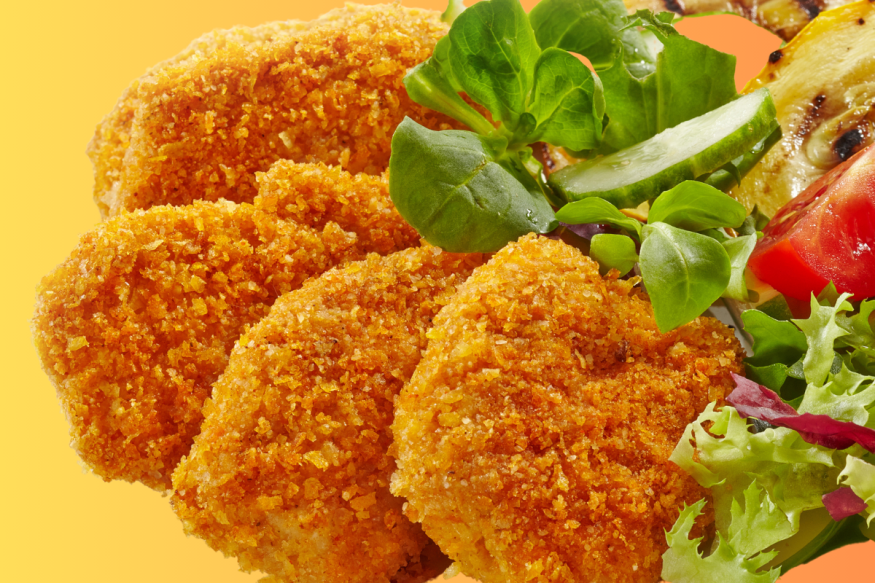
In a major food safety move, the USDA has made it illegal to sell contaminated raw breaded and stuffed chicken products, declaring Salmonella an adulterant.
USDA Cracks Down on Salmonella
The food safety landscape is undergoing a seismic shift. The United States Department of Agriculture has taken a serious stance against Salmonella contamination, declaring the bacteria an adulterant (aka a food pollutant) in raw breaded, and raw bread-stuffed chicken products. Effective immediately, it's against the law for companies to peddle these items if they contain Salmonella, the notorious bug responsible for countless cases of food poisoning each year. This unprecedented decision represents the first volley in the USDA's overarching campaign to banish Salmonella from America's poultry supply.
What's the Risk?
It turns out that these sneaky, crumb-crusted products often deceive consumers with their golden exterior, leading many to undercook them and leaving live Salmonella lurking within. The USDA has linked 14 Salmonella outbreaks and approximately 200 illnesses to these breaded foods since 1998 alone. Under the new laws, chicken processors must test the raw poultry before breading and stuffing. Any contaminated batches are strictly forbidden from hitting the market. What is really freaking us out is that this wasn't already being done, as if covering poultry with bread somehow killed cooties. I mean c'mon already!

What's Being Done?
While some food safety advocates pushed for swifter, broader action, the USDA chose a measured approach, seeking input from consumers and the industry. We're not quite sure what the industry might say, considering this is about to cost them buckets of money in inspections and possible label warnings not to undercook these snacks. After a year-long transition, this groundbreaking adulterant policy will be in full effect, heralding a new era of intensified Salmonella monitoring across our poultry products.
The bottom line is don't eat undercooked chicken. period. If this is challenging, buy a meat thermometer and check that your bird is cooked to at least 165°F. Also, wash hands, implements, surfaces, and anything you use to cook chicken when you're done. Don't reuse rags you soaked up chicken juice with, and please don't leave chicken lying out for extended periods of time. Eat well and stay safe, folks.



